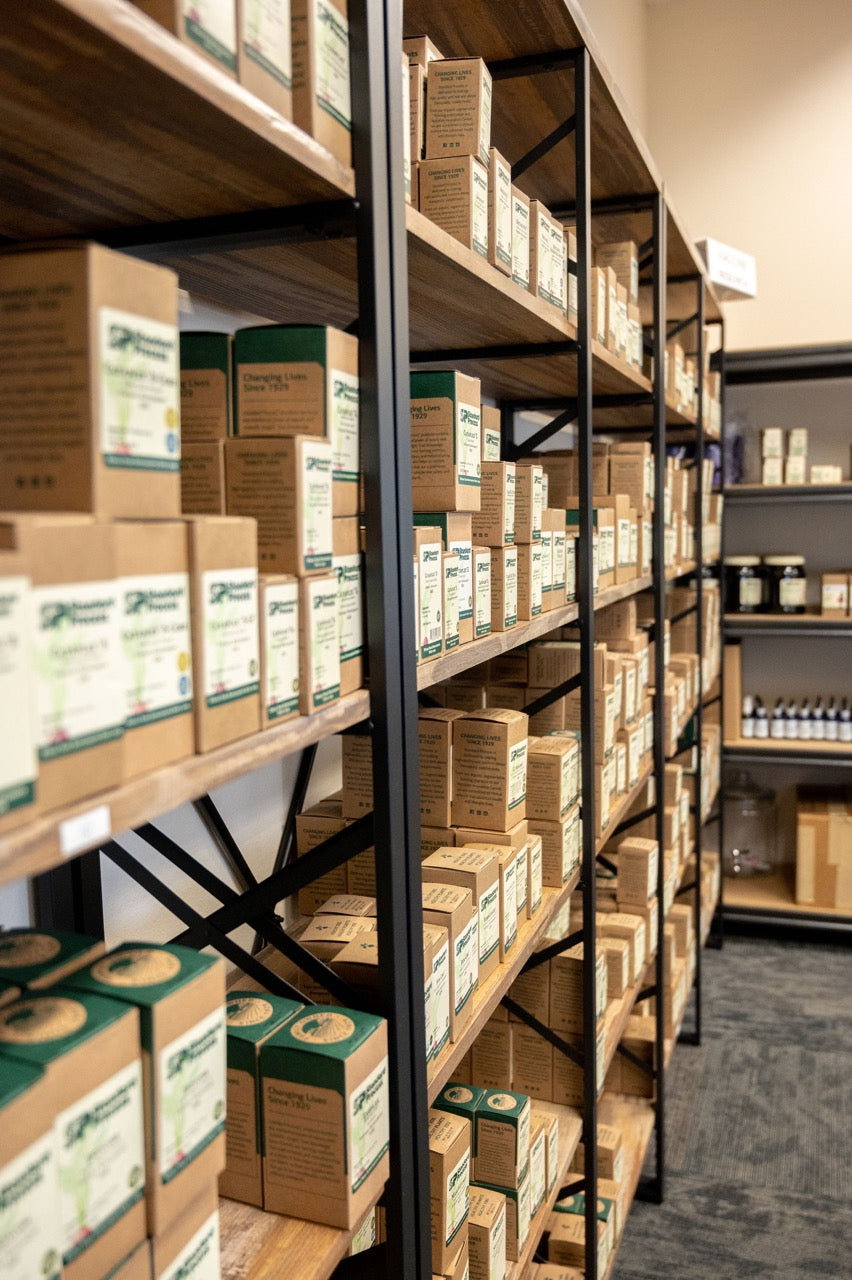Echinacea Benefits:
What Is It Good For and How to Use It
Echinacea, often known as coneflower, is widely used in traditional medicine due to its potential immune-boosting abilities. This plant extract can be found in various forms such as capsules, tablets, or ointments and helps alleviate symptoms of common colds and flu. Some evidence also points towards its anti-inflammatory and antioxidant properties which might have been unexpected. With its roots from the daisy family, expect to delve deeper on how to effectively use this flowering plant.
Echinacea is known for its potential to support immune function, reduce symptoms of the common cold and flu, alleviate pain, and decrease inflammation. It has also been used historically as an herbal remedy for various infections and wounds. Always consult with a healthcare professional before using echinacea or any other herbal supplement.

Exploring Echinacea: An Overview
Echinacea, also known as coneflower, has a significant reputation in traditional medicine for its potential health benefits. This plant has been used for centuries to support the immune system and alleviate symptoms of colds and flu. The extracts from this herbaceous flowering plant are available in various forms such as tinctures, tablets, capsules, and ointments, known for their potential to reduce inflammation and provide antioxidant effects. But what exactly are the potential benefits of using Echinacea?
One of the most famed uses of Echinacea is its role in boosting the immune system. The active substances in Echinacea stimulate the immune system, helping the body fight off infections more effectively. It's like giving your immune system a little nudge when it needs it most.
In addition to its immune-boosting properties, Echinacea is also recognized for its ability to reduce inflammation. This can be particularly beneficial in managing conditions associated with inflammation, such as arthritis or inflammatory skin conditions like eczema. The plant contains compounds that can help soothe inflammatory responses in the body.
Furthermore, the antioxidant effects of Echinacea are worth noting. Antioxidants neutralize harmful molecules called free radicals in the body, protecting cells from damage and supporting overall health. This aspect of Echinacea's benefits extends its potential impact beyond the immune system to overall health and wellness.
Imagine it like this: Using Echinacea is like having a multitasking superhero where, with just one product, you're potentially boosting your immune system, reducing inflammation, and benefiting from antioxidant effects all at once.
With a solid understanding of the core benefits of using Echinacea under our belt, let's now delve into its practical applications and how you can incorporate it into your routine for optimal health support.
Echinacea and Immune System Support
Echinacea has garnered a lot of attention for its potential to help strengthen the immune system and fend off infections. What makes this herbal remedy especially intriguing is its active substances, which are thought to stimulate the activity of immune cells—our body's natural defense force against pathogens like bacteria and viruses. So, what's the deal with echinacea and immune support?
Echinacea contains compounds such as alkamides, phenolic acids, and polysaccharides, which are believed to play a role in modulating the immune response. These substances are thought to interact with immune cells, aiding in the production of cytokines—molecules that help regulate the immune system's response to infection and inflammation.
Mechanism of Action
Echinacea's influence on the immune system involves bolstering the activity of white blood cells such as macrophages and natural killer cells, which are essential components of our defense system. These cells are responsible for seeking out and destroying harmful invaders that can make us sick.
Consider echinacea as a coach training our immune cells for battle by encouraging them to be vigilant and responsive to potential threats. When we consume echinacea, it's like sending reinforcements to our body's defense team.
It's important to note that while there is promising research on echinacea’s impact on immune health, it should not replace conventional treatments for serious infections. As always, consult with a healthcare professional before using echinacea or any other supplement for medical purposes.
With its purported ability to boost immune function and potentially assist in fighting off infections, echinacea remains a subject of ongoing scientific inquiry. Understanding its role in supporting the body's defenses can provide valuable insights into harnessing nature's resources for optimal health and well-being.
As we continue our exploration of the medicinal properties of echinacea, let's uncover additional ways this remarkable plant can contribute to our well-being.
Additional Medicinal Properties of Echinacea
Some studies have indicated that Echinacea may possess compounds with anti-inflammatory attributes, which could contribute to reducing inflammation in the body. This could potentially aid in alleviating symptoms of conditions associated with inflammation and promote overall wellness.
It's important to note that while many people have experienced positive effects with Echinacea, individual responses may vary. As with any natural remedy, it's advisable to consult with a healthcare professional before integrating Echinacea into your wellness routine, particularly if you have existing health conditions or are taking medications.
Understanding the diverse medicinal properties of Echinacea allows us to appreciate its broader spectrum of benefits. Whether it's managing pain, combatting viral infections, reducing inflammation, or promoting overall wellness, Echinacea stands as a versatile herbal ally offering potential relief and support in various health aspects.
With a deeper understanding of the broad-reaching benefits of Echinacea, let's now turn our attention to uncovering the extensive research behind this fascinating herb.
Echinacea: Unveiling the Research
Scientific curiosity has driven extensive research on Echinacea's medicinal properties. Various studies have aimed to uncover its potential in relieving cold symptoms, enhancing immune function, and combating infections. Decades of rigorous investigation have produced diverse and at times conflicting results, sparking a wealth of interest and debate within the scientific community.
One important area of study has been Echinacea's purported ability to reduce the severity and duration of cold symptoms. Research such as a randomized trial published in the Annals of Internal Medicine in 2010 has suggested that Echinacea may offer some relief for common cold symptoms. However, it is important to note that this study was just one piece of the larger body of evidence and further comprehensive studies are necessary to draw definitive conclusions about its effectiveness.
Moreover, exploration into the impact of Echinacea on immune function has yielded both promising and conflicting findings. Some investigations have posited that Echinacea supplements might stimulate the immune system, potentially offering protection against infections. It's worth noting that these findings are primarily based on laboratory studies and not conclusive human trials. Thus, while the findings are intriguing, more extensive research is required for a definitive understanding of its effects on immunity.
Another intriguing aspect is its potential efficacy in managing various infections, beyond just the common cold. Studies have examined whether Echinacea preparations could be beneficial in addressing upper respiratory tract infections and other health conditions. A systematic review and meta-analysis published in Complementary Therapies in Medicine in 2019 outlined varied results, indicating both positive and inconclusive outcomes. The diversity of these findings emphasizes the need for continued investigation into Echinacea's potential broader health benefits.
For instance, a systematic review published in Complementary Therapies in Medicine in 2019 highlighted that while some studies indicated potential positive effects on upper respiratory tract infections, others showed no significant improvement. These mixed findings underscore the complex nature of Echinacea's impact and underscores the need for further comprehensive research.
In essence, unraveling the intricacies of Echinacea's biological activity remains an ongoing task for researchers worldwide. With a patchwork of evidence touting both potential benefits and conflicting outcomes, continued scientific inquiry is essential to discern its true efficacy and unlock its full therapeutic potential.
As we step forward in our exploration of Echinacea's influence on health, let's uncover how this intriguing herb might relate specifically to colds and flu.
Echinacea and its Role in Cold and Flu

Echinacea has long been hailed as a natural remedy for the common cold and flu. Many people turn to this herbal supplement at the first sign of sniffles or a scratchy throat in the hope of lessening the severity and duration of their illness. But what does the scientific evidence say about its effectiveness?
Several studies suggest that Echinacea may offer some relief from cold symptoms, backed by claims that it can potentially reduce the severity and duration of a cold. The herb is believed to stimulate the immune system, thereby aiding the body's natural defense against viral infections.
However, it's crucial to note that there is ongoing debate surrounding the effectiveness of Echinacea in treating cold and flu symptoms. While some research supports its benefits, other studies have presented conflicting results, leading to skepticism about its actual impact on these conditions.
For instance, a review published in The Cochrane Database of Systematic Reviews found that while certain formulations and species of Echinacea showed promising results in reducing the risk of developing a cold, there was inconclusive evidence regarding its ability to alleviate cold symptoms or shorten their duration.
In contrast, a separate study published in The Lancet Infectious Diseases suggested that Echinacea supplements could play a role in reducing the incidence and duration of respiratory tract infections. However, it emphasized the need for further research to establish more definitive conclusions about its efficacy.
Think of it this way: Echinacea's potential benefits for cold and flu are akin to an ongoing puzzle with pieces that don't quite fit together yet. Each study adds a new piece, but the full picture remains elusive.
While Echinacea continues to be a popular choice for individuals seeking relief from cold and flu symptoms, its effectiveness remains a subject of scrutiny within the scientific community. Researchers are actively working toward unraveling its true potential as a holistic approach to alleviating these common ailments.
Now let's take a closer look at how Echinacea can be used, exploring practical guidelines for incorporating it into your health regimen when dealing with cold and flu symptoms.
Efficacy and Safety of Echinacea
Furthermore, the specific formulation, dosage, and quality of the Echinacea product used can significantly impact its potential benefits and safety. Not all Echinacea products are created equal, and variations in quality and composition can lead to differing outcomes.
For example, a study conducted on children aged 2 to 11 years old aimed to determine the efficacy and safety of Echinacea purpurea in treating upper respiratory tract infections (URIs). The results revealed that the dosing of Echinacea purpurea in this study did not effectively reduce the duration or severity of URI symptoms in children. Furthermore, an increased risk of rash was associated with the use of Echinacea purpurea.
This underscores the importance of being discerning when selecting an Echinacea product and seeking professional advice before incorporating it into one's wellness regimen.
Navigating the complexities of using Echinacea for wellness requires careful consideration and guidance. Let's now delve into expert guidelines for utilizing Echinacea effectively in promoting overall well-being.
Wellness Guidelines: Using Echinacea
When it comes to using Echinacea for your well-being, a little knowledge goes a long way. It's not simply about purchasing any product off the shelf; it's about ensuring that you are making informed and safe decisions for your health.Furthermore, seeking guidance from a healthcare provider before starting any new supplement or herbal remedy is advisable for everyone, not just pregnant or breastfeeding women. Your healthcare provider can provide valuable insight specific to your individual health needs and any potential interactions with medications you may be taking. This step ensures that you are making well-informed choices aligned with your overall wellness plan.
For more in-depth information on Echinacea, please visit our website at "https://nhicenter.com"
Equipped with this understanding of best practices for using Echinacea, you are ready to make informed decisions for your wellness journey while maximizing the benefits of this herbal remedy.
Your health and well-being are invaluable. By arming yourself with knowledge about Echinacea and its optimal usage, you take an empowered step towards nurturing your wellness.
Are there any specific conditions or illnesses that echinacea is particularly effective in treating?
Echinacea has proven effective in treating a range of conditions and illnesses. It has shown promising results in boosting the immune system, reducing symptoms and duration of upper respiratory tract infections such as the common cold, and alleviating symptoms of allergies. Studies have also suggested its potential in reducing the risk of recurrent respiratory infections. However, it is important to note that individual responses may vary, and further research is needed to establish its full efficacy and safety profiles for specific conditions.What are the potential health benefits of taking echinacea?
Echinacea has been widely studied for its potential health benefits, which include boosting the immune system, reducing the duration and severity of common cold symptoms, and aiding in respiratory health. Research suggests that echinacea may also have anti-inflammatory and antioxidant properties that can promote overall wellness. However, it is important to note that individual experiences with echinacea may vary, and more research is needed to fully understand its benefits. According to a review published in the journal Nutrients in 2019, echinacea supplementation was found to decrease the risk of recurrent respiratory infections by approximately 50% in children aged 2-6 years.How does echinacea work to support the immune system?
Echinacea supports the immune system by stimulating the production of white blood cells, which play a crucial role in fighting off infections and viruses. It also enhances the activity of macrophages, which are responsible for engulfing and destroying pathogens. Studies have shown that echinacea can reduce the duration and severity of colds and respiratory infections. Additionally, it has been found to increase the production of interferon, a protein that helps regulate the immune response.Can echinacea be used as a preventative measure to boost overall immune health?
Yes, echinacea can be used as a preventative measure to boost overall immune health. Studies have shown that echinacea stimulates the activity of immune cells, enhancing the body's natural defense mechanisms. Research has also demonstrated that regular use of echinacea can reduce the frequency and duration of respiratory infections. Additionally, a clinical trial reported that participants who took echinacea had a 45% decrease in the incidence of recurrent infections compared to a placebo group. Therefore, incorporating echinacea into one's daily routine can help strengthen the immune system and minimize the risk of falling ill.Are there any known side effects or risks associated with using echinacea?
While echinacea is generally considered safe for most people, there are a few potential side effects and risks to be aware of. Some individuals may experience mild gastrointestinal symptoms such as nausea or stomach pain. In rare cases, allergic reactions like rash or difficulty breathing have been reported. It is also worth noting that long-term use of echinacea may suppress the immune system. However, it is important to remember that these risks are minimal and occur infrequently. According to a study published in The Journal of Alternative and Complementary Medicine, only 1-2% of participants experienced side effects when using echinacea.





